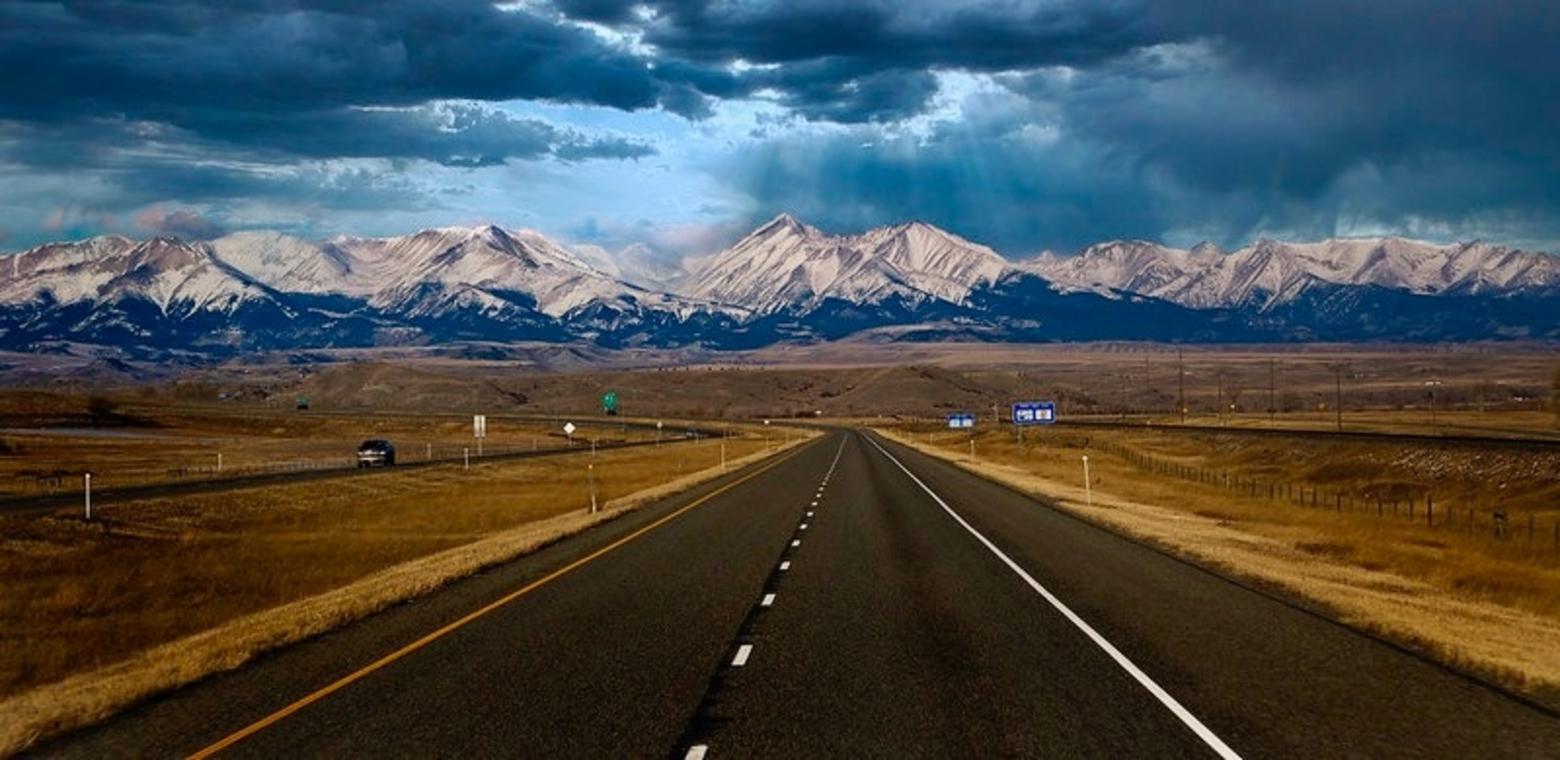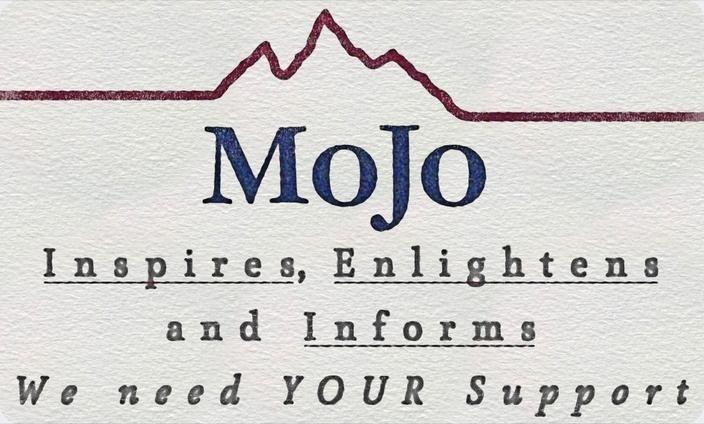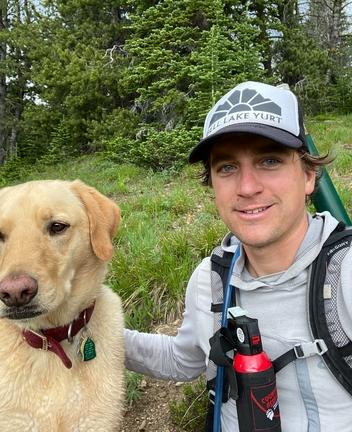Back to StoriesAm I Taking Crazy Pills?
March 30, 2024
Am I Taking Crazy Pills?Or does the land swap in the Crazy Mountains really need more scrutiny?
EDITOR'S NOTE: David Tucker is a freelance journalist covering conservation, recreation and the environment in the Greater Yellowstone Ecosystem. The following op-ed is an opinion piece written by Tucker referencing concern over the East Crazy Inspiration Divide Land Exchange.
by David
Tucker
On the
northeastern edge of the Greater Yellowstone Ecosystem, a controversial land
exchange is entering its final phase. Access issues have plagued this corner of the public domain for decades,
and the East Crazy Inspiration Divide Land
Exchange is being
billed as a resolution.
The public
gets clarity and expanded access. Private landowners consolidate their
holdings. The Forest Service eliminates a longstanding headache. And a luxury
resort expands its ski terrain.
Sounds
like a win-win-win-win, so why do I feel like the public is getting a raw deal?
At first
glance, things don’t seem all bad. Low-lying public acreage in the Crazies would
be swapped for higher-elevation private sections. The Yellowstone Club would
pay for the construction of a 22-mile trail connecting Big Timber and Sweet
Grass creeks, nearly all on public land. Private landowners would receive piece
of mind that their property was safe from public use—legal, but disputed, public use. And in the Madison
Range, the YC would get their new ski terrain and the public would retain
valued access on Buck Ridge and the Inspiration Divide trail.
When you
consider that the 11.5-mile East Trunk trail is being swapped for the to-be-constructed
22-mile Sweet Trunk trail; roughly 6,000 acres of private land are being
swapped for roughly 4,000 acres of public land; undeveloped private land is
being de facto preserved through newly established Forest Service management;
and public access is being augmented through additional acreage in the Madison
Range, it could be argued that the math favors the public and the habitat.
However,
nothing is quite that simple and the parcels involved are not apples to apples.
The considered country is prime wildlife habitat valuable for hunters in the
fall, and high-elevation “rock and ice” that, while beautiful and sought after
by the public, does not have the same recreational value. This is a somewhat subjective
perspective, although biologists would tell you that the lower-lying parcels
provide critical winter range and forage for elk and deer.
Conservation and environmental nonprofits supported a version of the proposed exchange—until they didn’t.
It is also
unclear to me whether the public is getting equal value for the lands they will
receive, a requirement of the Federal Land Policy and Management Act of 1976. Contiguous
land, regardless of deed restrictions or easements in place, can be more
valuable than checkerboarded parcels—think the exchanges in the Madison and
Gallatin ranges that allowed for the creation of the
Yellowstone Club—especially
when the deed restrictions are ambiguous and conservation easement contracts
are not in place, as is the case here.
The
landowners involved further complicate the calculous. In 2021, Lone Mountain
Land Company, a subsidiary of CrossHarbor Capital Partners, owners of the
Yellowstone Club, purchased the Crazy Mountain Ranch on the range’s western flank. This
raised concerns about the real-estate developers’
intentions in the
range. The Club also paid lobbyists to pitch this project across the
state, getting key stakeholders on board.
While nothing
nefarious has happened as of yet, the process to this point doesn’t feel
particularly transparent. Yes, the Forest Service checked their outreach boxes,
announcing the exchange in the necessary paper of record, the Bozeman Daily
Chronicle. And yes, public meetings were held and a coalition of stakeholders was assembled. Conservation and
environmental nonprofits even supported a version of the proposed exchange—until they didn’t.
Maybe
nothing additionally detrimental comes of this, but I share an uneasiness felt
by many who have taken the time to dig in. It feels like the public is
getting a raw deal and that a precedent is being set for future land disputes.
What
guarantees do we have that these newly established private lands will not
forever change the wild character of the Crazies? Is the Forest Service
appropriately positioned in the matrix of this exchange? Are the lands of roughly
equal value, and how is that value being determined? Is this generally in the
public’s best interest?
While the
East Crazy Inspiration Divide Land Exchange is surely more complex than this
brief synopsis lays out, it is clear to me that the public needs to know more
and get more involved with the outcomes on our public lands. The official
comment period for this issue is over, but we now have an opportunity to appeal directly to our elected representatives and
let them know our concerns, if you share them as I do.
We cannot
afford to take access to public lands for granted. People have fought for this
access, and we need to carry that legacy forward. We won’t win every dispute,
but if we don’t speak up, we will surely lose most.
Join me in
opposing the land exchange as currently outlined by the
Forest Service. The deadline to submit a public comment is Wednesday April 3.
________________________________________________________________________________________________________________________
Mountain Journal is the only nonprofit, public-interest journalism organization of its kind dedicated to covering the wildlife and wild lands of Greater Yellowstone. We take pride in our work, yet to keep bold, independent journalism free, we need your support. Please donate here. Thank you.
Related Stories
October 2, 2024
Are Bison Numbers in Yellowstone Sustainable?
About 4,500 bison live in
Yellowstone National Park. The National Park Service says it plans to manage
for up 1,500 more but a...
December 6, 2023
Outrage in Wyoming Erupts Over Public-Land Auction
A pristine piece of public land within Grand Teton National Park is on the auction block. It could go to the...
April 25, 2024
Wilderness: An Update on the Custer Gallatin
Considering
the changing climate and recent proposals, four heavy hitters weigh in on the future
of Wilderness, wildlife and the Custer Gallatin National...




